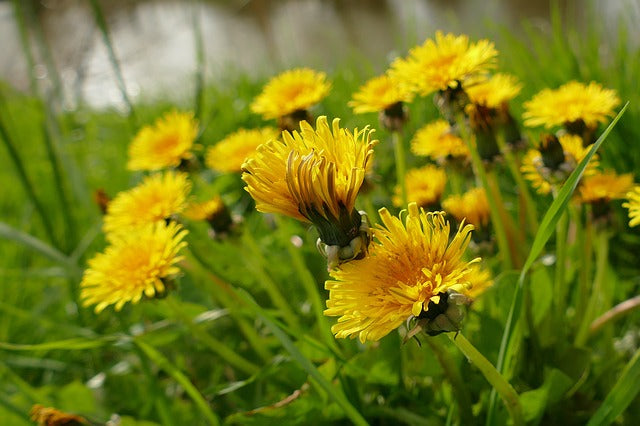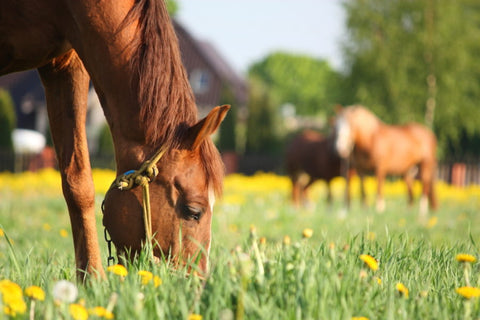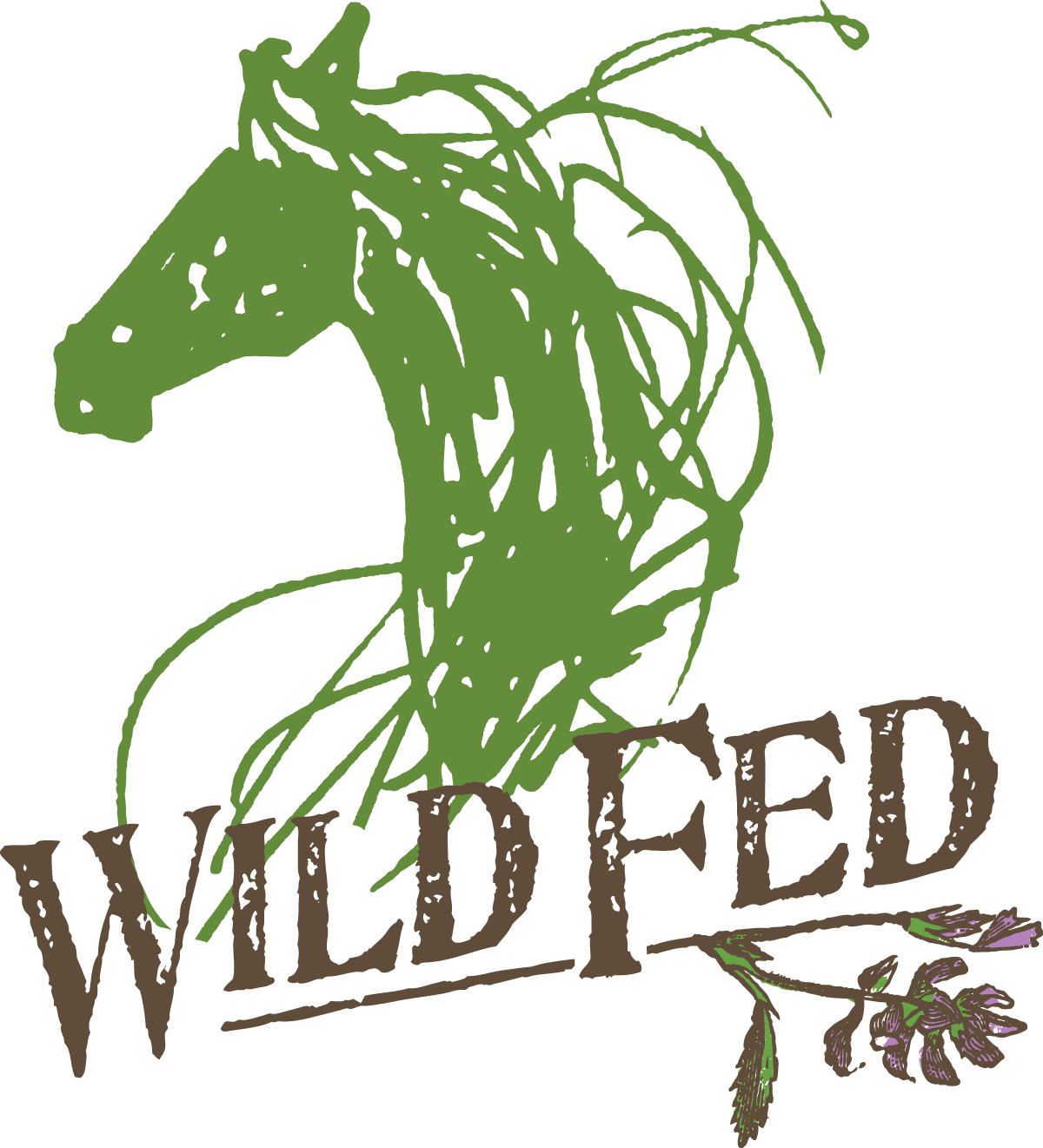
HERBS FOR HORSES, NATURALLY.
Horses, left to there own devices, consume herbs regularly. They will eat an assortment of herbs, barks, grasses, seed heads and sometimes even roots when allowed to do so, but they are careful what they eat and what they eat changes with the seasons. Some herbs are meant to be eaten daily and have gentle action on the body like dandelion and nettles and are considered “food grade herbs”. Other herbs are meant to be eaten only occasionally and for a short period of time because they have a stronger action on the body. These more medicinal herbs, such as Oregon grape or Comfrey, are used for acute illness. However, when used long term, they can over-correct and be detrimental to the horses health.
Many horse owners want to increase their horses health and add in herbs and medicinal plants daily such as kelp, garlic and devils claw. Kelp for example is not appropriate for every horse and should not be given to your horse daily over long periods of time, because it is rich in iodine and can actually cause an overload of iodine in your horse and lead to the formation of goiters. Cayenne or other warming herbs such as cinnamon, garlic or ginger can create too much heat in your horse if given long term. Other herbs when used too long, can be too cooling like peppermint, too drying like witch hazel or too moistening like slippery elm.

This is why horses need to be rotated on and off of different herbs to give their bodies a break. In the wild they graze on different herbs as they come into season eating them for a few months at a time and in small amounts. Wild Fed Horse Feed has been designed to contain just those herbs horses chose to graze on daily and that way you can add other herbs that your particular horse needs for whatever length of time is appropriate.
We don’t always really know what herbs a horse really needs and its important to be careful not to over-prescribe or give any one herb for to long a period of time without a break.

